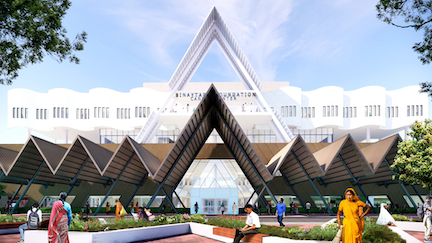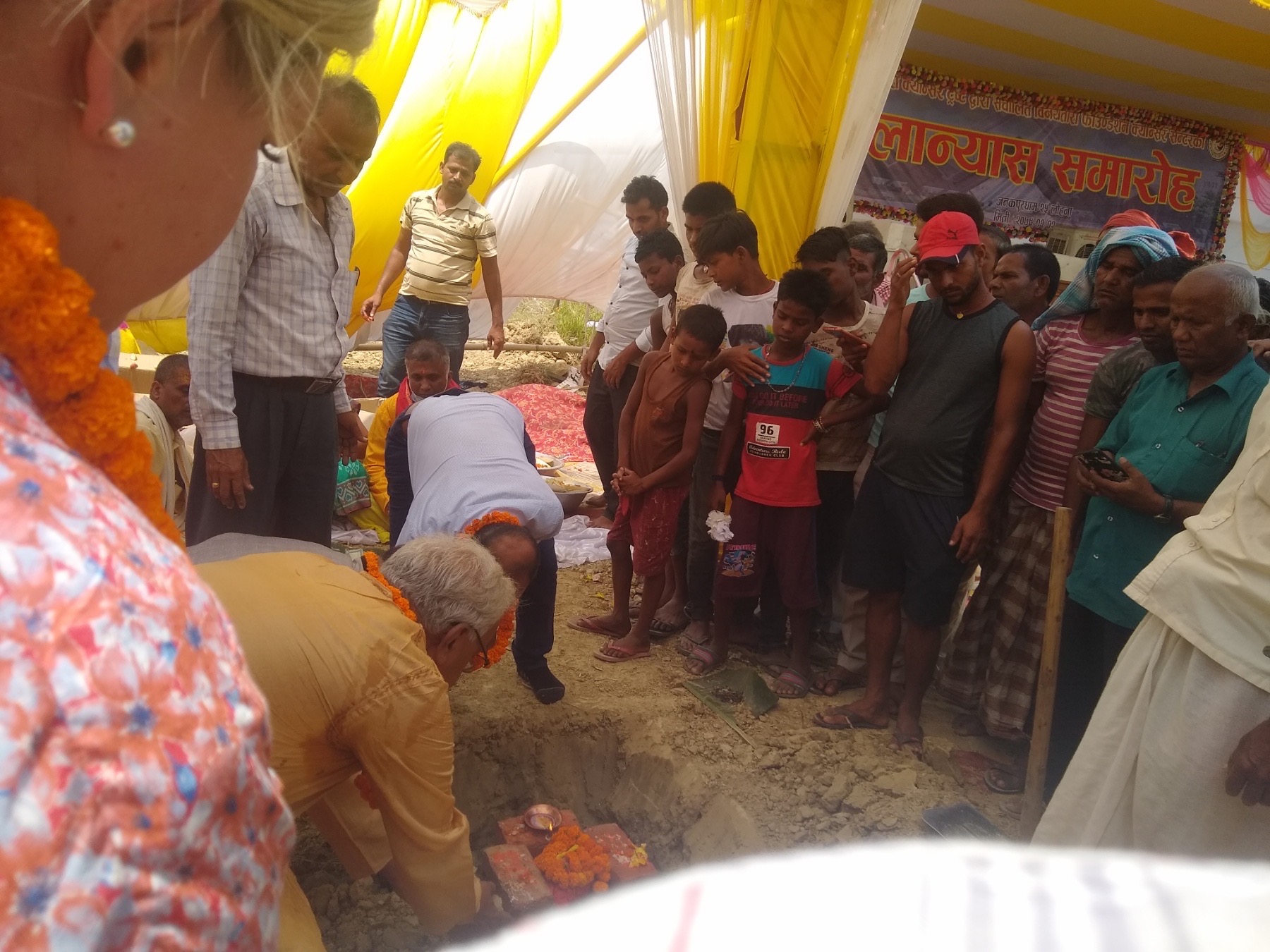Janakpurdham, Nepal, April 16, 2022 - The Binaytara Cancer Trust held a groundbreaking ceremony for the first phase of its planned 200-bed cancer hospital in Janakpurdham, Nepal on April 15. The Binaytara Foundation Cancer Center (BTFCC) currently operates a 25-bed cancer hospital out of a rented building located on Kapileshwor Road, Janakpurdham. Ongoing services include medical oncology, surgical oncology, head and neck cancer surgeries, laboratory, pharmacy, emergency room, radiology, histopathology, intensive care, and anesthesiology. The BTFCC aims to provide cutting-edge treatment to even more patients in the new facility while serving as a center for education and cancer research.
The hospital will serve as a place where doctors and researchers collaborate and trade ideas to provide high-quality cancer treatment and discuss ways to innovate. Our new center is going to shape the future of healthcare in Nepal in ways we can only imagine. Already, the BTFCC boasts the implementation of a next-generation hospital information system, and is one of the few hospitals in South Asia to be 100% paperless.
Dr. Binay Shah, President, Binaytara Foundation
“We aim to change the way cancer care is delivered,” says Dr. Binay Shah, president of the Binaytara Foundation. “The hospital will serve as a place where doctors and researchers collaborate and trade ideas to provide high-quality cancer treatment and discuss ways to innovate. Our new center is going to shape the future of healthcare in Nepal in ways we can only imagine. Already, the BTFCC boasts the implementation of a next-generation hospital information system, and is one of the few hospitals in South Asia to be 100% paperless.”
Binaytara Foundation Cancer Center New Hospital Plans
The first phase of the cancer hospital, a 100-bed building, is planned to be completed by 2025. It is designed by San Francisco-based Fong and Chan Architects, who have generously provided 75 percent of their time for the project as a donation. Their innovative design is aimed at optimizing the functionality of the hospital and improving the patient experience in approximately 175,000 square feet, with about 100,000 dedicated to the first phase. It will be built on land that was donated in part by local supporter and humanitarian, Mr. Binod Thakur.
This new cancer hospital in Janakpur, Nepal will serve patients of Madhesh Province and the neighboring states of Nepal and India, with a population of 25 million. The Binaytara Foundation anticipates serving about 25,000 patients per year. In the past, many of these patients would have had to travel for eight hours or more, leaving behind friends and family, to receive cancer treatment. Those who didn't have the resources for such a trip might not have received treatment at all.

Why the Binaytara Foundation is Building a New Cancer Hospital in Janakpurdham?
Cancer is a leading cause of death in both developing countries and developed countries. As such, Nepal is experiencing a surging burden of non-communicable diseases such as cancer. Currently, all of the comprehensive cancer centers are currently located in one province, Province 3, which has a population of 6 million mostly concentrated in urban areas such as Kathmandu Valley, Bharatpur, and Hetauda. Nepal’s cancer incidence rate was predicted to increase to 38.5 per 100,000 for male and for females, 41.4 by 2020. However, with its poor healthcare infrastructure, lack of trained providers in oncology, poor health literacy among the public, and the inequitable distribution of healthcare resources, the country is woefully unprepared to handle the burden of cancer.
The majority of cancer patients in Nepal currently either go undiagnosed or are diagnosed at a terminal stage as six of the seven provinces in Nepal don’t have a comprehensive cancer center, leaving nearly 25 million people living outside province 3 with no access to cancer care. For the people of Nepal’s Madhesh Province , this means traveling at least 200 kilometers to Chitawan or Kathmandu for cancer care. Distance is not the only barrier to care for the residents of this province; the region is geographically and culturally very different from province 3.
The most populous among Nepal’s seven provinces, Madhesh Province rests on the southeastern lowlands and borders the Indian state of Bihar on the south. The province is home to nearly 6 million residents, commonly known as Madhesis, with unique socio-cultural and linguistic backgrounds. These people face economic, cultural, and linguistic barriers when traveling for care outside the region.
About Binaytara Foundation:
Binaytara Foundation is a global cancer non-profit dedicated to improving access to cancer care in the United States and abroad through education and innovative program models that break down barriers and advance best practices in hematology and oncology. Binaytara Foundation’s major projects include hematology and oncology conferences, and the establishment of a cancer hospital in Nepal.

